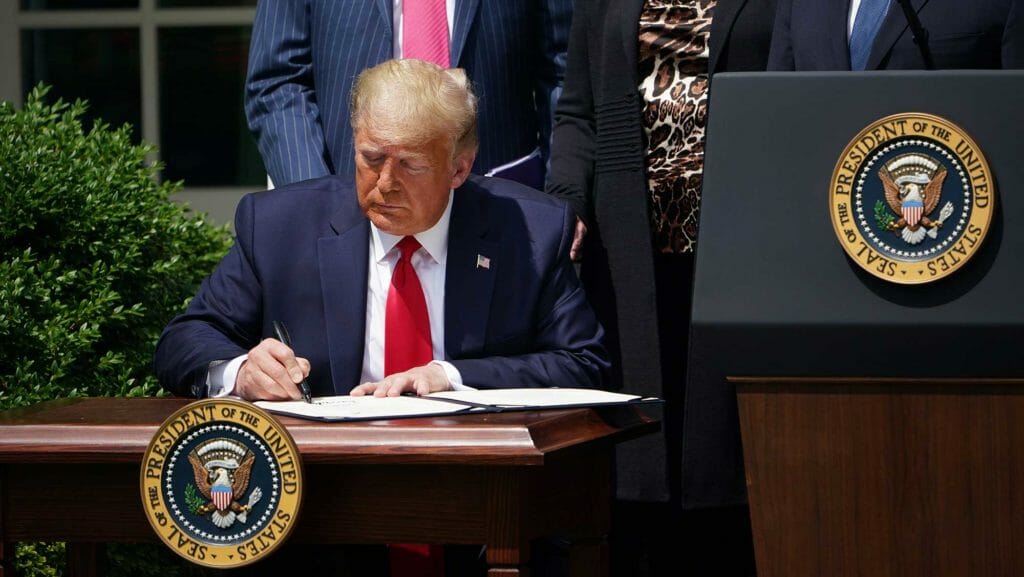Following Wednesday’s announcement that COVID-19 vaccines will be mandated by the federal government for nursing homes, could a similar national requirement be in store for senior living? It might be if long-term care industry associations get their wish.
“The government should not single out one provider group for mandatory vaccinations. Vaccination mandates for healthcare personnel should be applied to all healthcare settings,” American Health Care Association / National Center for Assisted Living President and CEO Mark Parkinson said Wednesday after the nursing home mandate was announced.
“LeadingAge has encouraged its members to make a COVID-19 vaccination a condition of employment. But federal mandates that single out one healthcare setting will leave millions of older Americans unprotected and risk doing more harm than good,” LeadingAge President and CEO Katie Smith Sloan said yesterday in a statement.
AHCA/NCAL on Monday cited fears that a mandate will lead to a “mass exodus” of vaccine-hesitant workers from nursing homes, who will flee to other healthcare settings where the federal government is not requiring vaccination. “The president’s order should include a vaccine mandate for all healthcare workers in all Medicare and Medicaid-certified settings,” Parksinson said Friday in a letter to federal health officials. “This is the only way to prevent nursing facility employees from leaving to work in other settings such as hospitals or home health.”
Forty-eight percent of assisted living communities are Medicaid-certified, according to NCAL.
Sloan agrees with Parkinson’s assessment of the potential for loss of nursing home workers.
“Mandating vaccines in nursing homes alone may lead vaccine-reluctant staff to jump to other healthcare settings where mandates are not imposed — increasing the risk in those care settings and exacerbating already-dire staff shortages in nursing homes,” she said Monday.
The same day, she reiterated the thought in a letter to the secretary of Health and Human Services, the Centers for Medicare & Medicaid Services administrator and the White House director of domestic policy. “Mandates that don’t cover the whole healthcare workforce are likely to further workforce shortages, driving some nursing home staff to employers not requiring vaccination — which is untenable,” Sloan said.
LeadingAge, too, is calling for CMS to broaden its mandate requiring vaccines as a condition of employment to all healthcare providers that participate in Medicare and/or Medicaid.
Of course, the federal government has the leverage to issue a vaccine mandate for skilled nursing providers due to the substantial amount of funding the sector receives from CMS. Providers that don’t comply risk losing funding. If you’re thinking that the federal government doesn’t have the same kind of leverage over senior living operators, you’re right.
But there is the matter of the $1 billion that senior living providers have accepted from the federal government in the form of CARES Act Provider Relief Fund monies, with hopes of receiving a sizable chunk of the $44 billion that’s left, after having successfully argued to be considered healthcare providers eligible for the funds.
And the pandemic has drawn more attention from the federal government to the primarily state-regulated senior living industry — for instance, in the form of an inquiry from senators into the pandemic practices of operators and in subsequent legislation, and also in the form of consideration by CMS of requiring assisted living communities to report COVID vaccination data to the federal government. Neither of those efforts has progressed further, to date.
If a national mandate does not cover senior living, it could put the long-term care industry in the uncomfortable position of one sector benefiting at the expense of another. But it wouldn’t be the first time in an industry that sees older adults progressing through stages of needing certain services and care identified with one sector.
And as senior living operators increasingly put vaccine requirements in place for employees, the sector may not be an attractive target for fleeing nursing home workers anyway.
In a recent American Seniors Housing Association survey, 62% of respondents said they have or are in the process of adopting a vaccine mandate as a condition of employment, ASHA President David Schless told me. “Senior living operators are clearly moving to mandate COVID-19 vaccination, and a significant number have in fact already done so voluntarily,” he said.
ASHA is recommending the approaches to increased vaccine uptake also favored by other industry associations.
“ASHA would like to see better targeted vaccine messaging from the federal government to address those who are hesitant to take the COVID vaccine, and would also urge the Biden Administration to help obviate the caregiving shortage by amending the Immigrant Visa Prioritization to move nurses and other skilled healthcare professionals into the top priority tier,” Schless said. “In fact, Congress should consider broader legislative proposals to provide immigrant essential workers who have worked tirelessly and at great personal sacrifice throughout this pandemic, including those with temporary status and undocumented immigrants, with a lawful pathway to permanent residence. These essential workers are a critical component to recovery from COVID-19 and they should be recognized for that.”
For now at least, it looks like any vaccination mandate that directly affects senior living companies and workers will come from the individual operators themselves and perhaps state and local governments.



